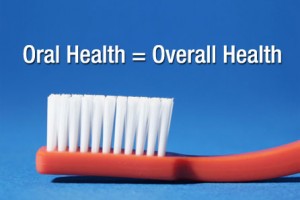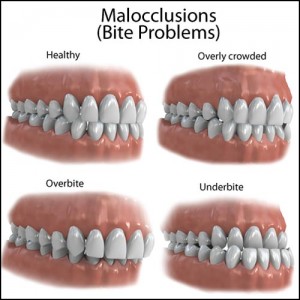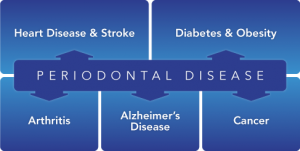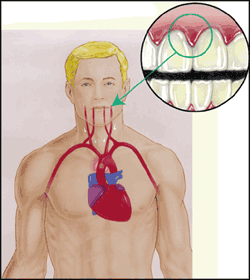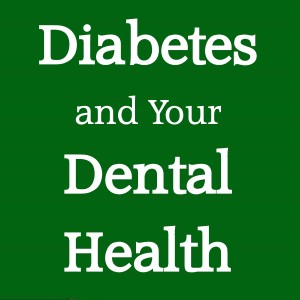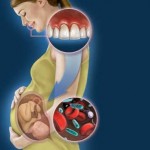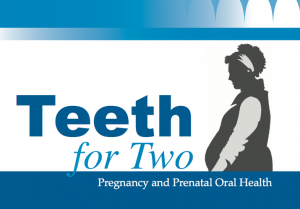This blog post is the 9th in a series of articles to inform our readers about the connection between your oral health and your overall health.
It’s called the “Mouth-Body Connection,” and it means that poor dental health can severely deteriorate your body, especially your lungs and heart, and it can also lead to a host to other conditions including Alzheimer’s disease and even some Cancers.
What is obesity?
According to www.letsmove.gove, obesity is defined as excess body fat. It accumulates to the extent that it may have an adverse effect on health, leading to increased health problems and reduced life expectancy.
Typically, Body Mass Index, or BMI, is used as a screening tool for overweight or obesity. BMI is a measure of body fat based on height and weight. People with a BMI of 25 to 29.9 are considered overweight. People with a BMI of 30 or more are considered obese.
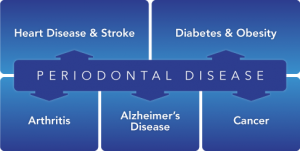
You can calculate your BMI by visiting this chart. http://www.nhlbi.nih.gov/health/educational/lose_wt/BMI/bmi_tbl.htm
Here at Loveable Smiles in Richardson, we treat all our patients like family. This blog post is not meant to judge but it is simply meant to inform our readers about the facts between your oral health and your overall health. We believe YOU deserve a Loveable Smile and look forward to helping you achieve Optimal Dental Health.
Obesity Statistics
- More than 1/3 of US adults are obese. (35.7%)
- Obesity has become one of the most serious public health problems of the 21st century.
- Obesity increases the likelihood of various diseases including heart disease, Type 2 Diabetes, sleep apnea, certain types of cancer and osteoarthritis.
- The most common type of obesity results from excessive sugar and carbohydrate intake.
- Obesity is the leading preventable cause of death, world-wide.
How is obesity related to your dental health? 
Various studies have shown that those with excess weight have more oral health problems, including higher tooth decay, more missing teeth, and fewer essential dental fillings than other individuals in general.
Those who carry excess weight and are between the ages of 18 and 34 were found to have a 76% higher rate of gum disease than individuals within a normal weight range.
Before we explore this topic any further, we want to reassure our readers that if it’s been a while since you’ve been to the dentist, here at Loveable Smiles, we will not judge you. We will be happy to see you. We are dedicated, to helping you achieve a health mouth, which will in turn help you with your overall health.
Tooth Decay
The connection between obesity and tooth decay relies largely on diet. The combination of bacteria and food causes tooth decay. Plaque, a clear, sticky substance that contains bacteria forms on teeth and gums and as the bacteria feeds on the sugars in the foods, they make acid. The acid attack the teeth for 20 minutes or more after eating. Over a period of time, these acids destroy teeth enamel, resulting in tooth decay.
Diabetes, Heart Disease, Sleep Apnea
As mentioned above, obesity increases the likelihood of various diseases including heart disease, Type 2 Diabetes and sleep apnea. We have covered these topics and how they relate to gum disease quite extensively on this blog. (See links here.)
The bottom line is that it’s a problematic “Catch 22.” Obesity can lead to tooth decay, which can lead to gum disease. And gum disease not only leads to severe oral health disorders, but can exacerbate these overall health conditions, such as diabetes or heart disorders.
Your gums are the “foundation of your house” and if the foundation crumbles, the house crumbles with it.
If you want to achieve your health goals, we encourage you to start with your dental health.
Dr. Korenman and his team are dedicated to educating the public about the dangers of gum disease and they check all their patients for it.
If you are diagnosed with gum disease, Dr. Korenman can design a treatment plan to help you keep it under control.
We urge you to call Loveable Smiles for your Total Health Dental Care appointment. 972-231-0585
This is just one of many examples of how we treat people, not just teeth.

